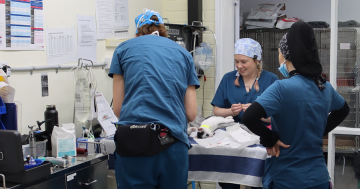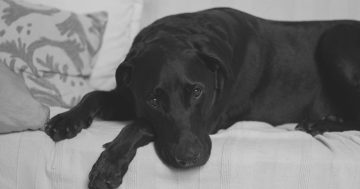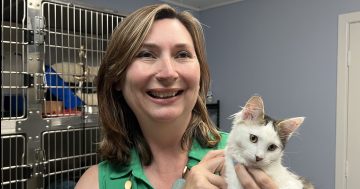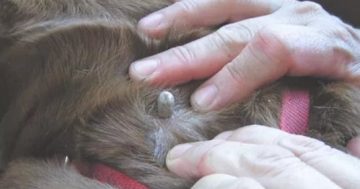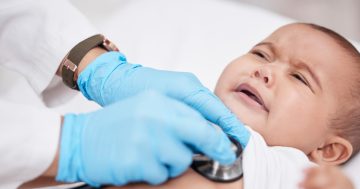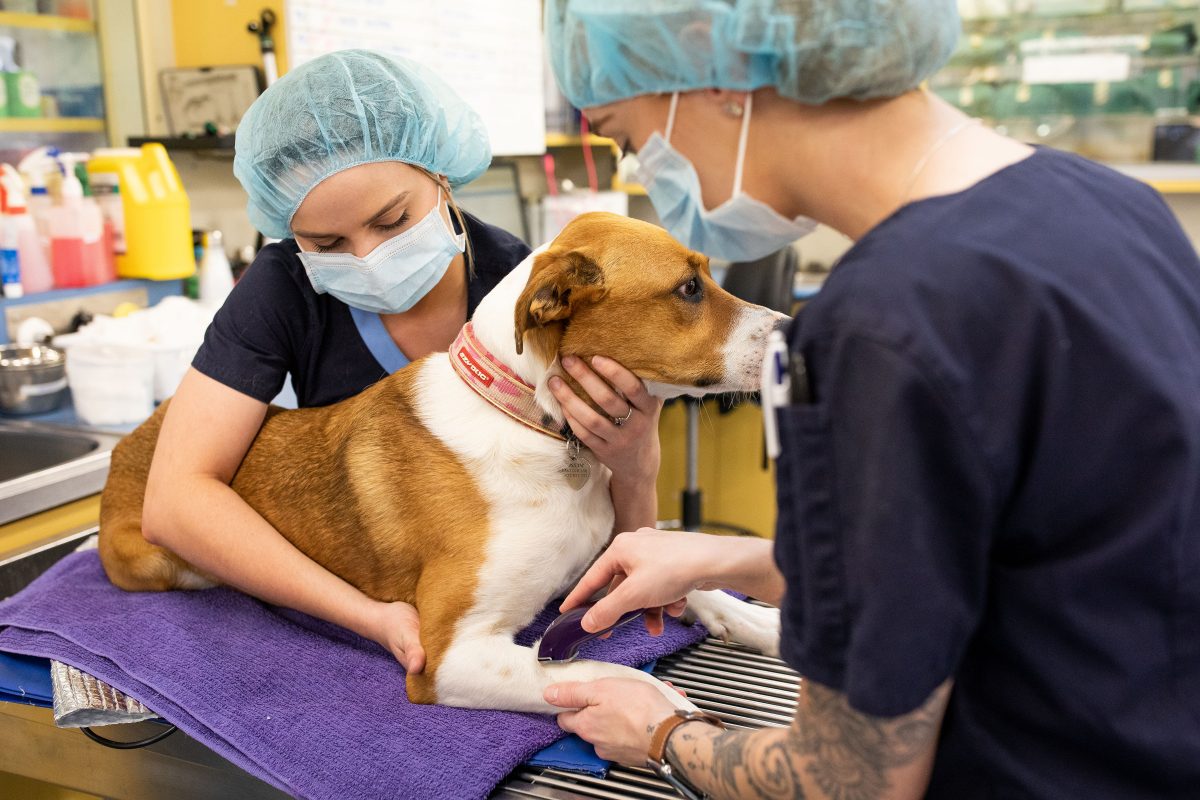
Dr Michael Hayward suggests vaccinating your dog to protect them from diseases prior to travelling interstate to Sydney and the South Coast. Photo: Gungahlin Veterinary Hospital.
A bacterial infection has led to the death of two dogs on the NSW South Coast.
Leptospirosis affects the liver, kidneys, and sometimes the respiratory system and brain in dogs and other animals, including humans. It is spread through contact with soil, water or vegetation contaminated with urine from infected animals, most commonly rats and mice.
Gungahlin Veterinary Hospital vet Dr Michael Hayward said the disease has been present in Australia for hundreds of years, but it hasn’t been identified in this area for more than five years.
“Leptospirosis is a long-term disease. It’s not new or emerging,” Dr Hayward said.
“Cases were identified in Haymarket in Sydney and then gradually spread out over that time and now, two months ago, there were cases spread to Newcastle and the South Coast.”
In the first outbreak detected on the South Coast, two dogs died in the St Georges Basin area.
Although treatment is available, the damage is often too severe and most infected dogs either die or need to be euthanised.
The most common symptoms include vomiting, diarrhoea, lethargy, jaundice, loss of appetite, changed frequency of urination and nosebleeds.
Dr Hayward said although the disease hasn’t reached Canberra, he said it is always a possibility.
“The disease is more likely to occur in warm, humid areas rather than in dry areas,” he said.
“Canberra wouldn’t be considered a particularly high-risk area, but given the traffic of dogs to and from the South Coast, there has to be concern.”
The Gungahlin vet said researchers at Sydney University are tracking the disease and recommend dogs living on the South Coast be vaccinated against leptospirosis.
“In the current outbreak, over the last five years, 71 per cent of infected dogs have died despite efforts to care for them,” Dr Hayward said.
“Some of the owners would have chosen euthanasia; however, many of those dogs received intensive care in different hospitals and yet died regardless.
“It has a very high fatality rate and is a very serious disease indeed.”
Besides getting vaccinated, Dr Hayward said dog owners should avoid letting their dogs play in puddles or drink from puddles.
“The primary source of infection is contaminated water. This includes pools, puddles and flooding streets of fresh water, so dogs should be kept out of those areas,” he said.
“The data that we have from the outbreak so far shows that 75 per cent of vaccinated dogs will survive the infection.
“About a quarter of vaccinated dogs who get infected can still die from it, so it’s still an extremely serious disease, but vaccination confers good protection but not 100 per cent protection.”
Although only dogs have been victims of leptospirosis so far, it can be contracted by people through direct contact with urine or water contaminated with the urine of rodents.
To find out more information about leptospirosis, visit RSPCA.












